Indira Gandhi, also known as Indira Priyadarshini Gandhi, was the only child of Jawaharlal Nehru, the first prime minister of India. She spent much of her childhood in Mahatma Gandhi‘s company, a close family friend. Indira was educated in Switzerland and India and married Feroze Gandhi, a fellow student at Allahabad University, in 1942.
After her husband died in 1960, Indira Gandhi became increasingly involved in politics. She was elected to the Lok Sabha, the lower house of the Indian Parliament, in 1964. In 1966, she was named minister of information and broadcasting in the government of Prime Minister Lal Bahadur Shastri. After Shastri’s death in 1966, Gandhi became prime minister.
Gandhi was controversial, and her government was embroiled in several scandals. Nevertheless, she remained popular with the Indian people and was reelected in 1971. In 1972, she nationalized the country’s banks and proclaimed a state of emergency, which granted her sweeping powers. She was defeated in elections in 1977, but she returned to power in 1980.
During her final years in office, Gandhi was accused of corruption and authorizing a violent crackdown on Sikh separatists in Punjab. In 1984, she was assassinated by two of her Sikh bodyguards. Her son named Rajiv Gandhi, succeeded her as prime minister.
Early Life and Career:
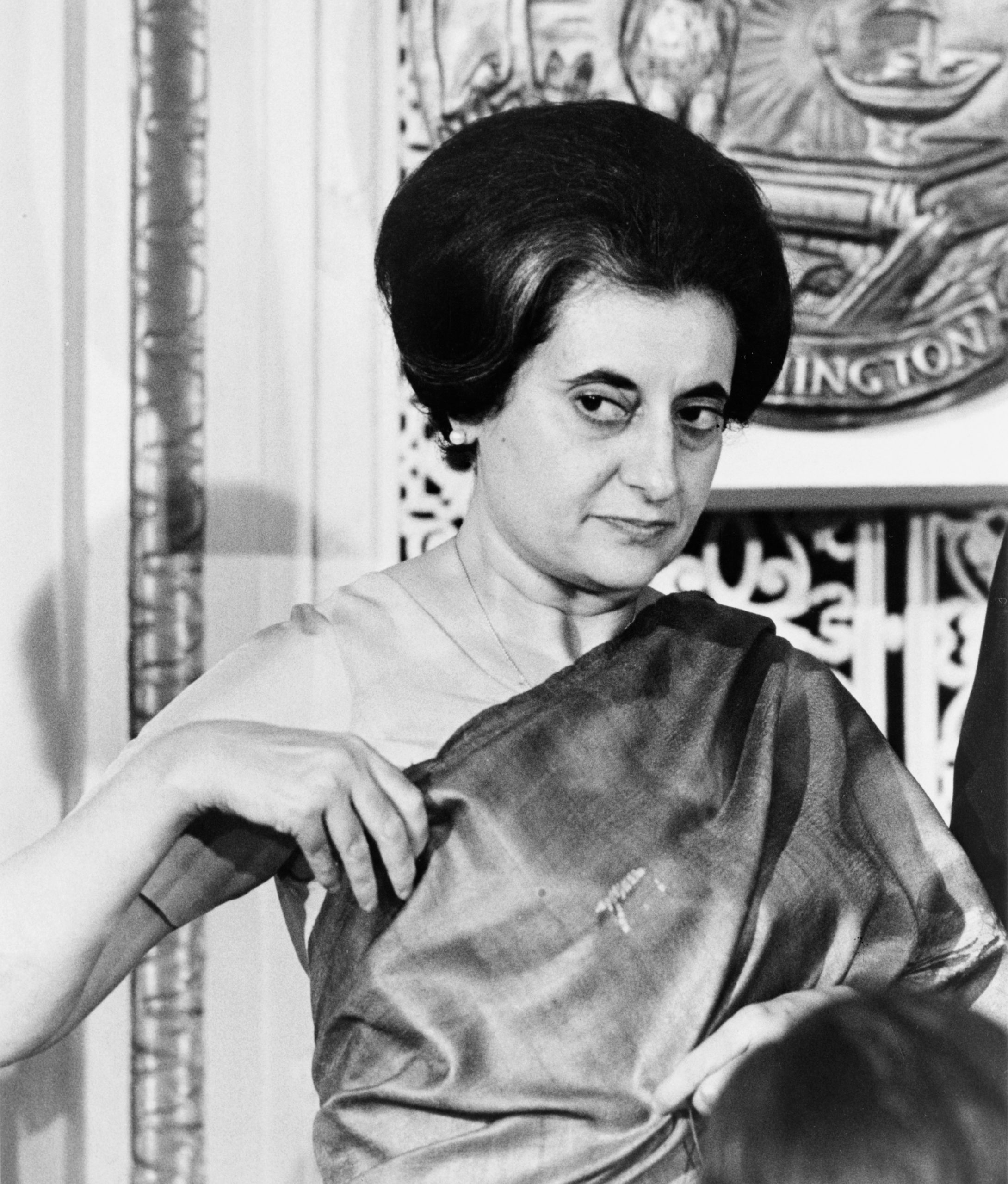
Indira Gandhi was born into a Kashmiri Pandit family on November 19, 1917, in Allahabad, India. She was the only child of her father, Jawaharlal Nehru, a lawyer, and a leading figure in the Indian independence movement. Her mother, Kamala Nehru, was also active in the independence movement. Indira was educated in India and Switzerland. She returned to India in 1934 and married Feroze Gandhi in 1942.
First Term as Prime Minister:
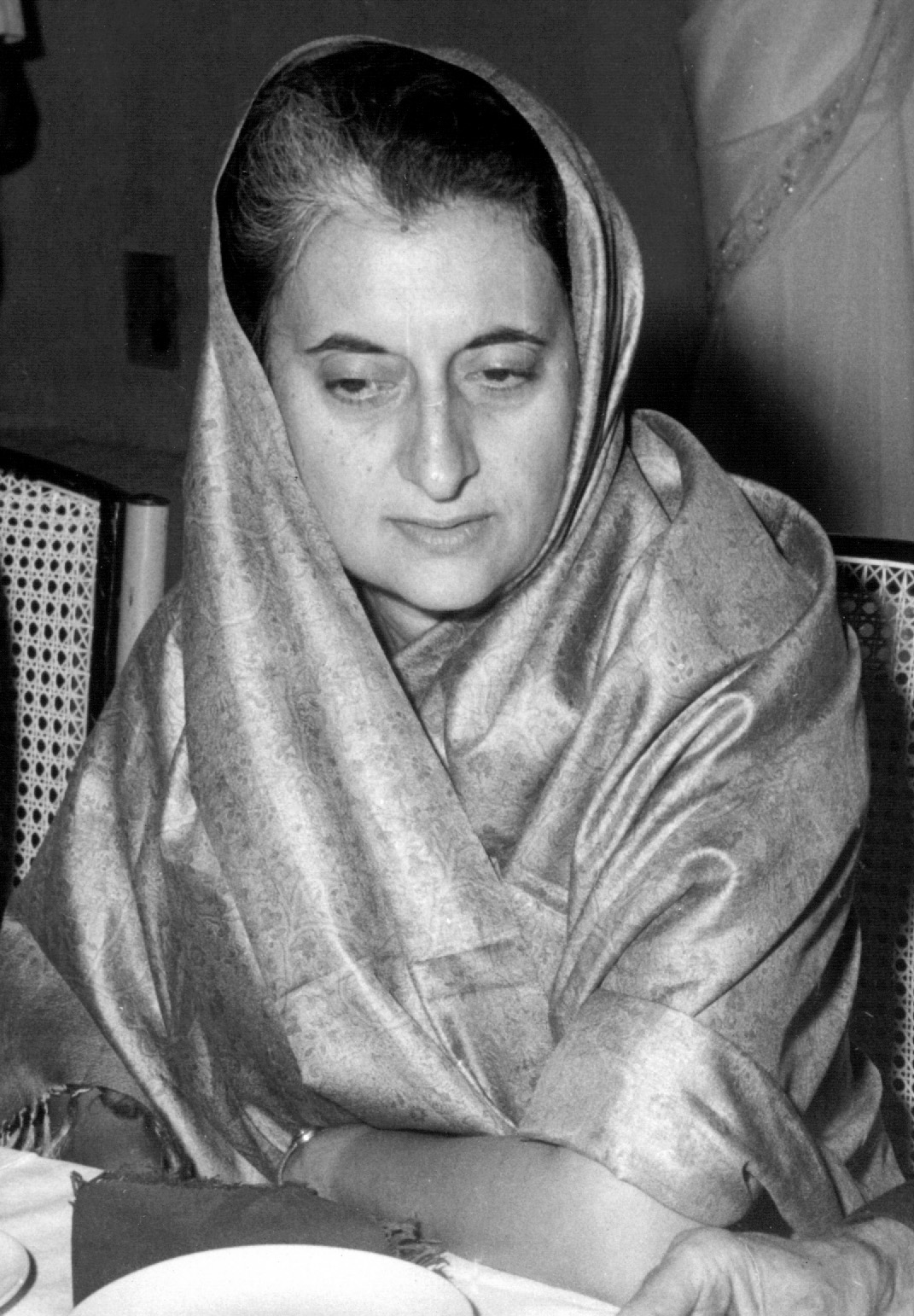
After her husband died in 1960, Indira Gandhi became active in politics. She was elected to the Lok Sabha, the lower house of the Indian Parliament, in 1964. She served as a member of the Cabinet from 1966 to 1977. Indira Gandhi was elected prime minister of India in January 1966, following the death of Prime Minister Lal Bahadur Shastri. During her first term as prime minister, Gandhi faced several challenges, including a major war with Pakistan in 1971 and a major famine in 1974. She also faced opposition from within her own party, the Indian National Congress, and other political parties. In 1975, Gandhi declared a state of emergency, which led to a crackdown on civil liberties and political dissent.
Gandhi’s first term as prime minister was marked by economic and social reforms, including the nationalization of banks and the abolition of privy purses. She also oversaw the development of India’s nuclear program. Gandhi’s foreign policy was focused on improving relations with the Soviet Union and the United States. She served as prime minister until March 1977, when she was defeated in a general election. Gandhi returned to power in January 1980 and served until her assassination in October 1984.
From 1971 to 1977:
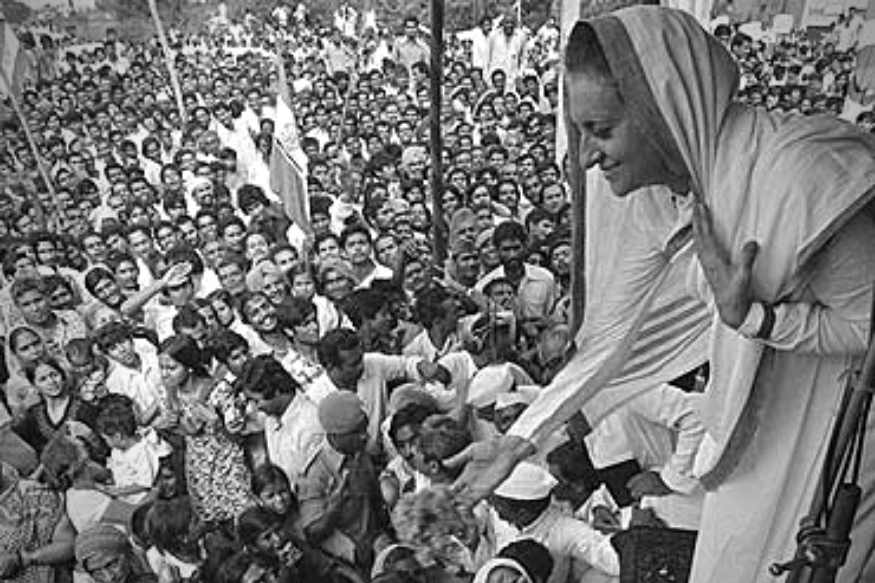
Garibi Hatao (Eradicate Poverty) was Gandi’s political bid slogan. It was in response to the theme of Indra Hatao. Indira Gandhi was the Prime Minister of India from 1971 to 1977. Her biggest achievement came in December 1971, when India’s victory over Pakistan in the Indo-Pakistan war became the independence of Bangla dash. She was named by opposition leader Atal Bihari Vajpayee at that time as goddess Druga.
She was a controversial figure, and her time in office was marked by political turmoil and economic problems.
State of Emergency:

Indira Gandhi declared a state of emergency in 1975, suspending many civil liberties and imposing harsh censorship laws. The move was widely unpopular and led to massive protests across the country. Gandhi was eventually ousted from power, and the emergency was lifted.
Entry of her son Sanjay Gandhi
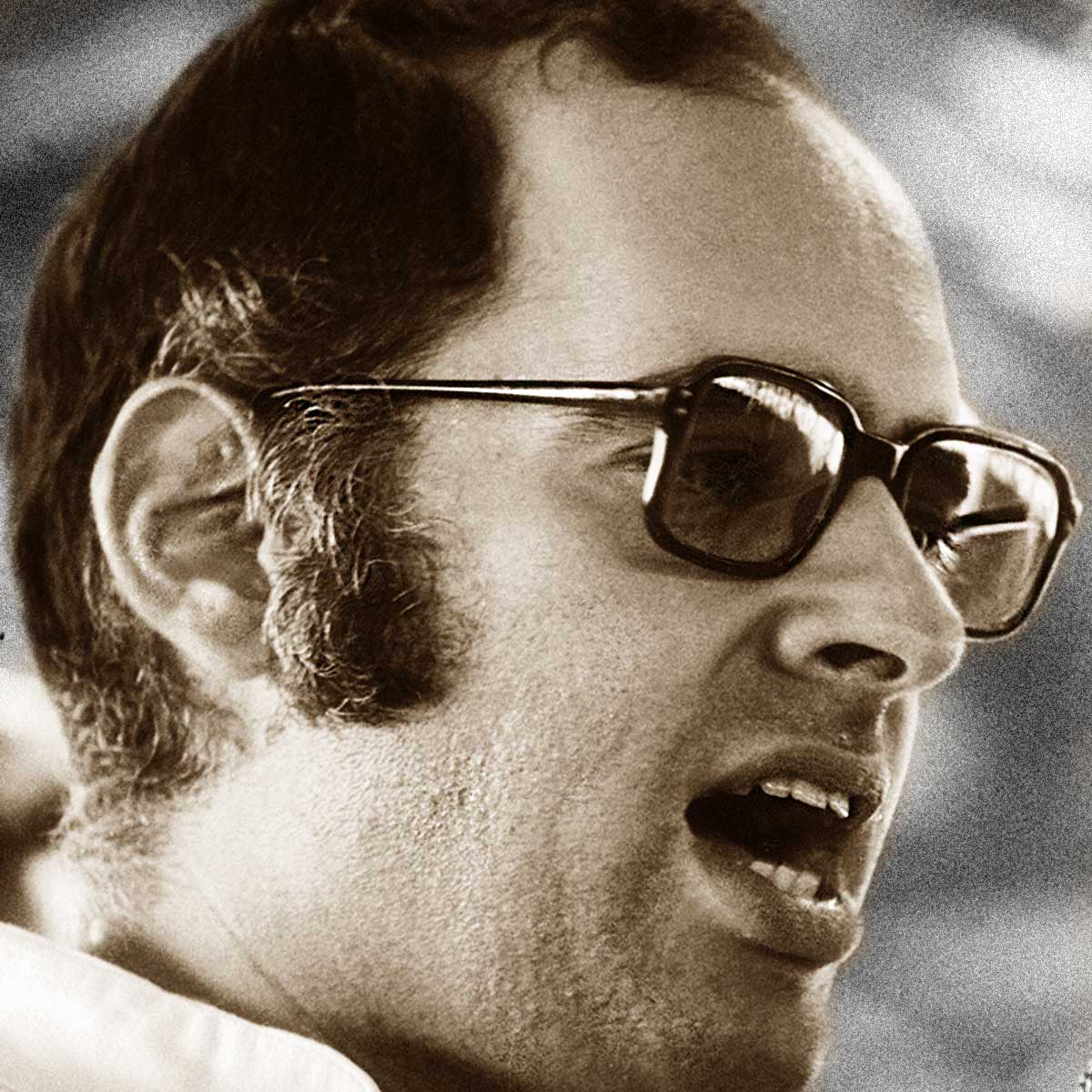
The emergency made easy the entry of her son Sanjay into Indian politics. He exercised tremendous powers during the emergency without holding any government office.
- Sanjay was a highly ambitious and charismatic young man who quickly became Indira’s most trusted advisor. He was also very popular with the Indian people, and his charisma helped Indira win over many supporters. Sanjay was instrumental in helping Indira consolidate her power within the Congress Party and played a key role in her election campaigns. He was widely seen as her political heir, and his untimely death in 1980 was a major blow to Indira.
Foreign relation
During her time as Prime Minister, Indira Gandhi was known for her strong leadership and dedication to her country. She was also known for her foreign relations skills, and she worked hard to build strong relationships with other countries. Indira Gandhi was a key player in the Non-Aligned Movement and worked tirelessly to promote peace and stability in the world. She was also a strong advocate for the rights of developing nations, and she worked to ensure they received the support and assistance they needed. Indira Gandhi was a true world leader; her legacy continues to influence India’s foreign policy today.
3rd Term 1980-1984:
From 1980 to 1984, Indira Gandhi was the Prime Minister of India. During her tenure, she oversaw a period of economic growth and modernization, as well as the escalation of the country’s conflict with Pakistan. She also played a key role in developing India’s nuclear program. Gandhi’s time in office was marked by controversy, and she was ultimately assassinated in 1984.
Assassination Of Indira Gandhi:
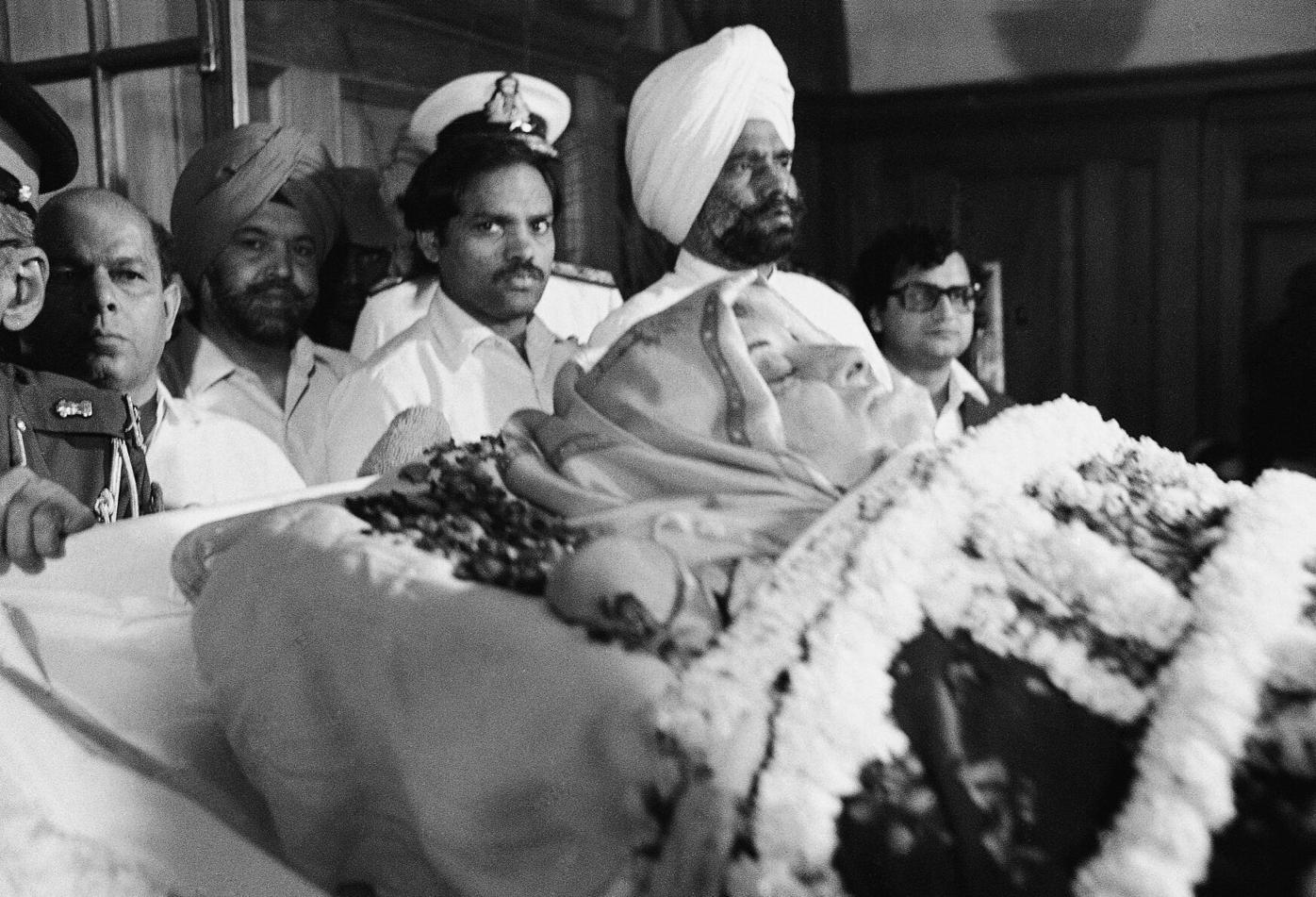
The assassination of Indira Gandhi was a political murder of the highest order. Mrs Gandhi, the Prime Minister of India, was gunned down by her own bodyguards in the garden of her residence in New Delhi. The assassins, Beant Singh and Satwant Singh were both Sikhs. This act of violence was widely seen as revenge for Mrs Gandhi’s decision to order the Indian Army to storm the Golden Temple in Amritsar to flush out Sikh militants who had been using the holy site as a base for their operations. The assault on the temple, which left many Sikhs dead, outraged the Sikh community, and led to a wave of anti-Sikh violence across India. In the aftermath of Mrs Gandhi’s assassination, more than 3,000 Sikhs were killed in riots. The assassination of Indira Gandhi was a watershed moment in Indian history, and its effects are still being felt today.
Assassination reaction:
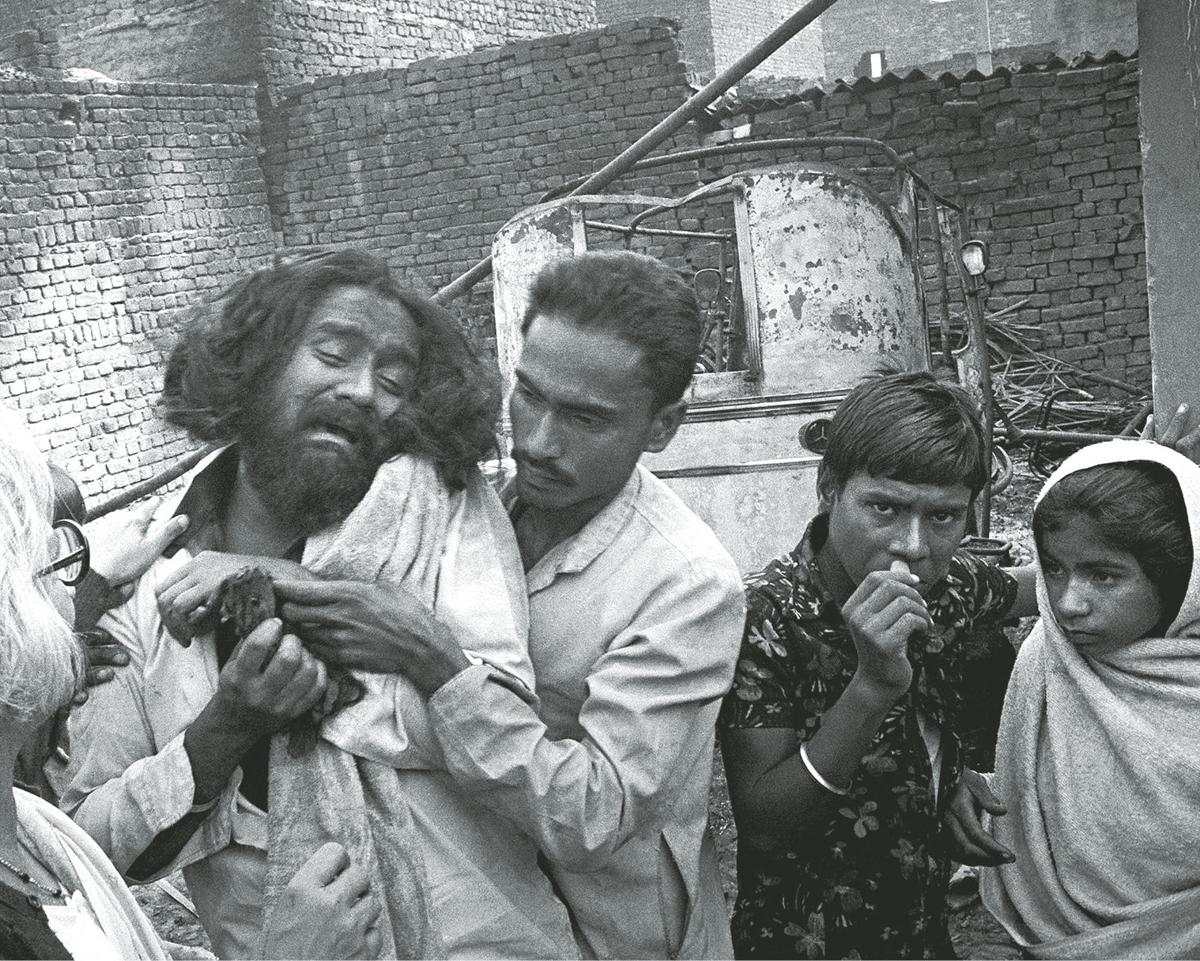
The assassination was met with shock and disbelief by the people of India. Mrs Gandhi was one of the country’s most respected and loved leaders, and her untimely death was a huge blow to the nation. There was widespread mourning across India as people came to terms with the loss of their leader. Mrs Gandhi’s funeral was attended by thousands of people from all walks of life, and her death was widely mourned by the international community.
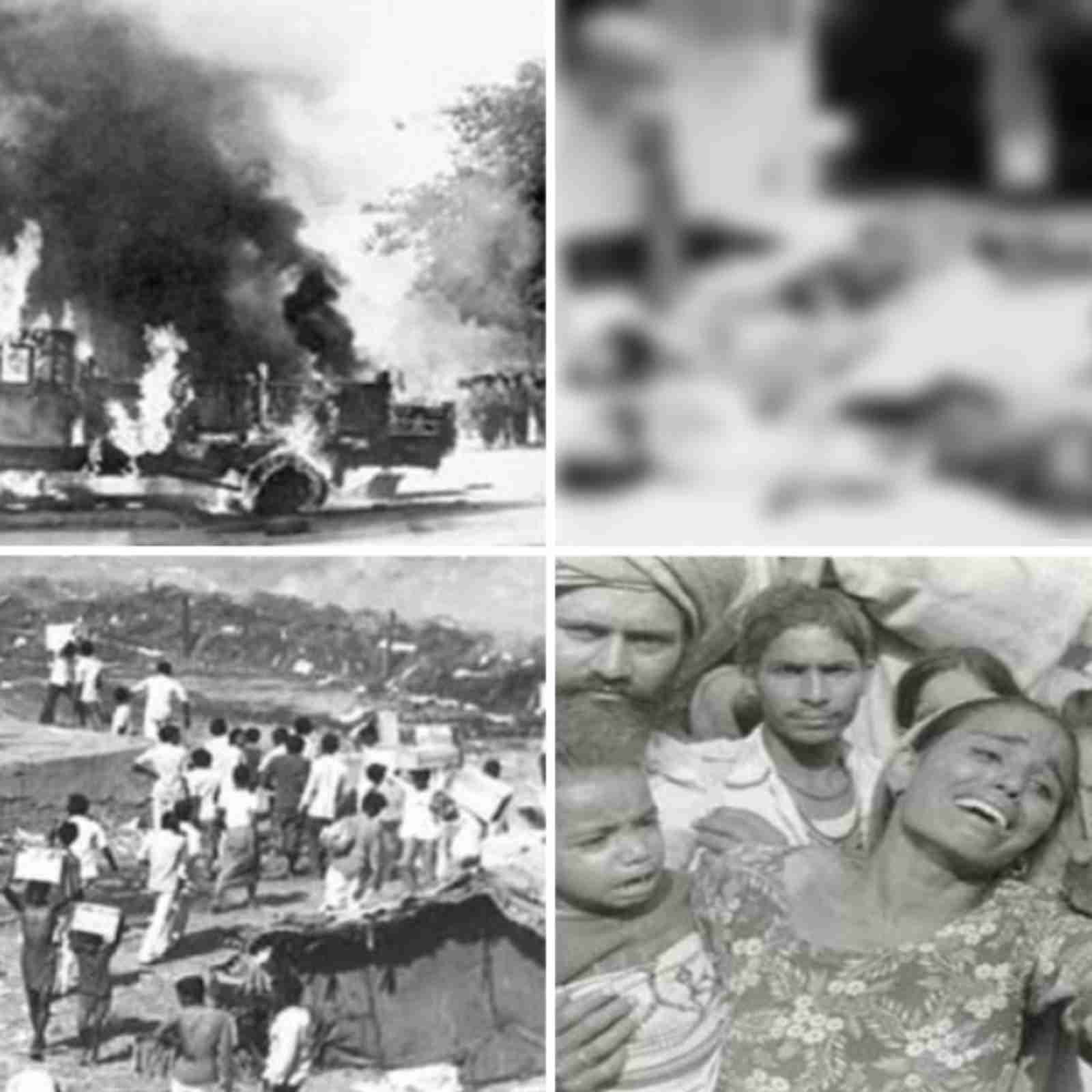
The assassination also sparked a wave of violence across the country, with Sikh populations being targeted in retaliation. Over the next few days and weeks, there were reports of Sikh homes and businesses being attacked, and many people were killed in the violence. The assassination of Indira Gandhi was a tragic event for the people of India, and it is still remembered with sadness and regret by many.
Summary:
Indira Gandhi was one of the most influential and controversial political figures of her time. Born into a wealthy and privileged family, she was educated in England and returned to India to take up a position in the Indian National Congress party. She quickly rose through the ranks and became Prime Minister in 1966. During her time in office, Mrs Gandhi faced many challenges at home and abroad. She was instrumental in leading India to victory in the 1971 war with Pakistan, which resulted in the creation of Bangladesh. She also faced several internal challenges, including dealing with separatist movements and economic instability. Perhaps her most controversial decision was to declare a state of emergency in 1975, which led to a period of civil liberties. Despite her controversial policies, Mrs Gandhi remained a popular and influential leader until her assassination in 1984. Her legacy continues to be felt in India and around the world.